The new sonic adventures of Sigur Rós
Jónsi Birgisson and Georg Hólm talk about their first new album for 10 years, the return of keyboardist Kjartan Sveinsson and vegetarian hot dogs...
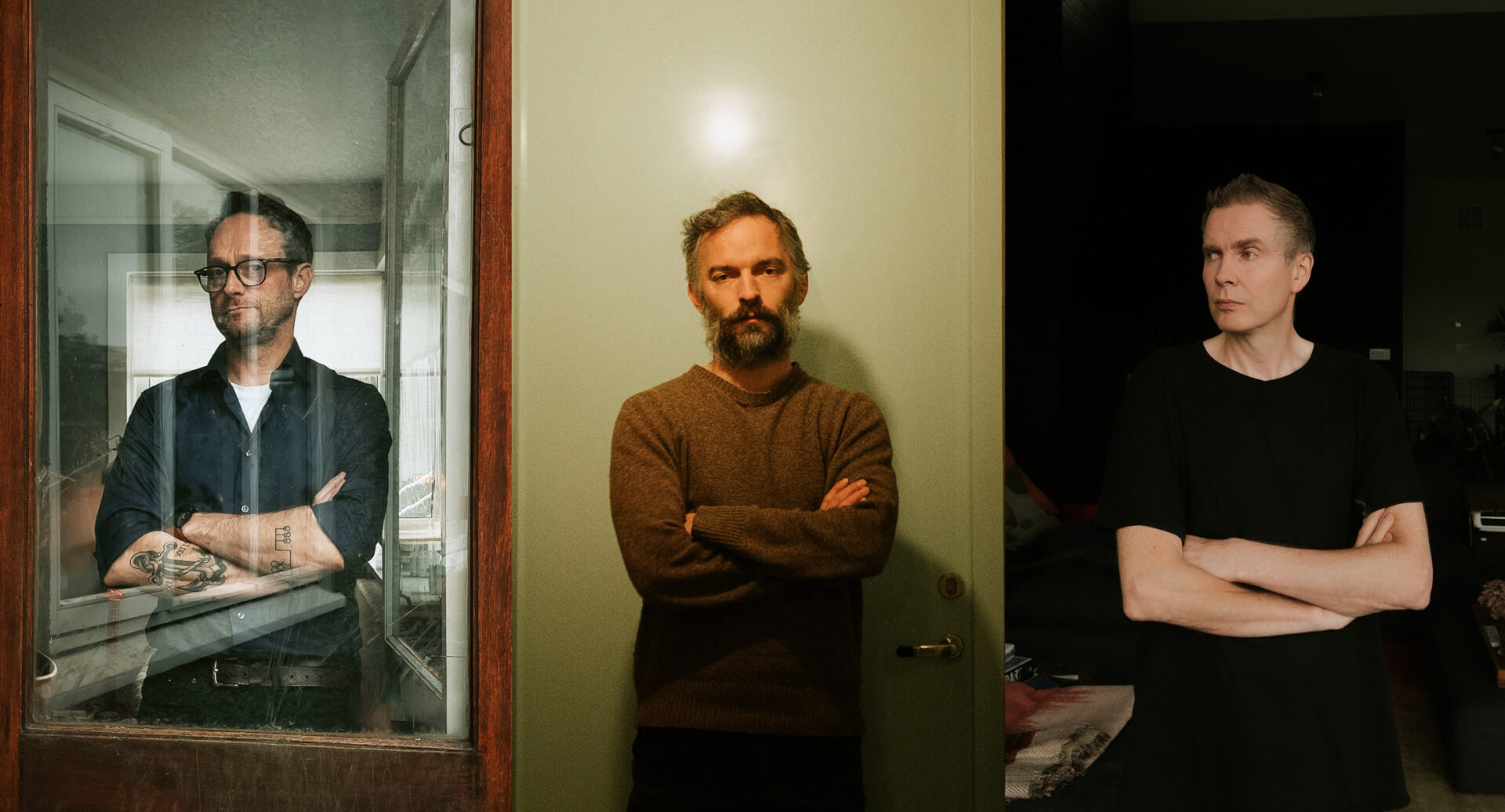
When promoting a new album, the lead singer of one of the most successful non-English-speaking bands in the world probably doesn’t expect to be asked about hot dogs.
But when it comes to interviewing Sigur Rós, it seems remiss not to ask about Reykjavík’s famous hot dogs which have been scoffed by the likes of Bill Clinton and might just be the Icelandic capital’s greatest offering — aside from being a hub of musical creativity that spawned Sigur Rós.
“Of course I’ve had a hot dog, but I’ve been vegetarian for 23 years now, so a long time ago,” comes the response from Sigur Rós frontman Jónsi Birgisson.
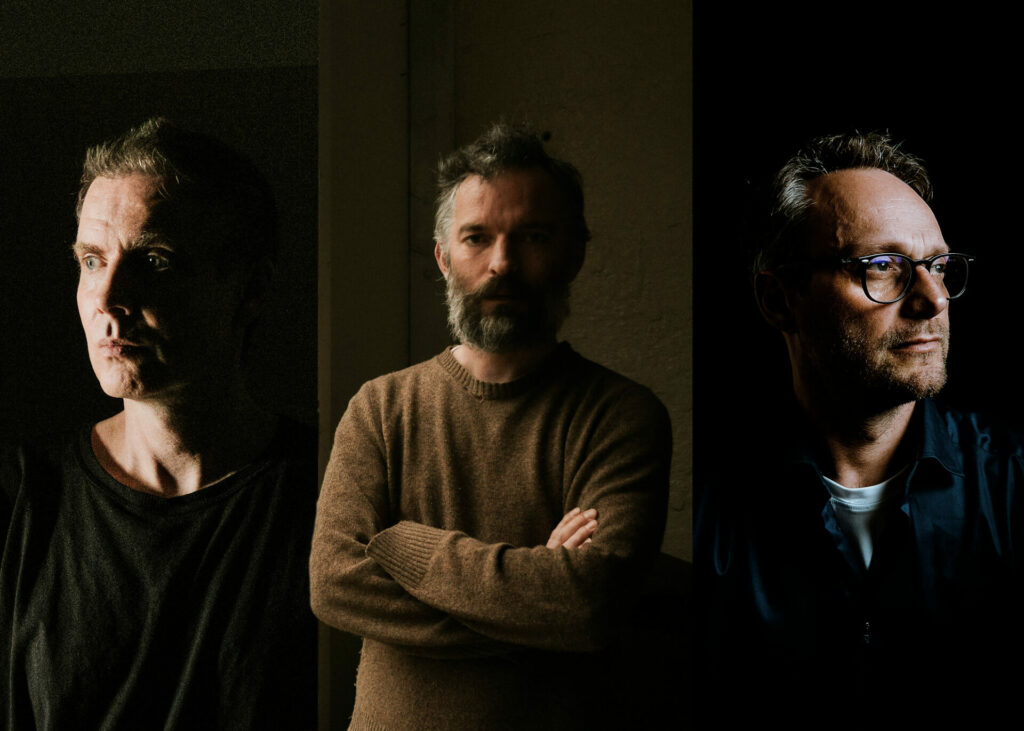
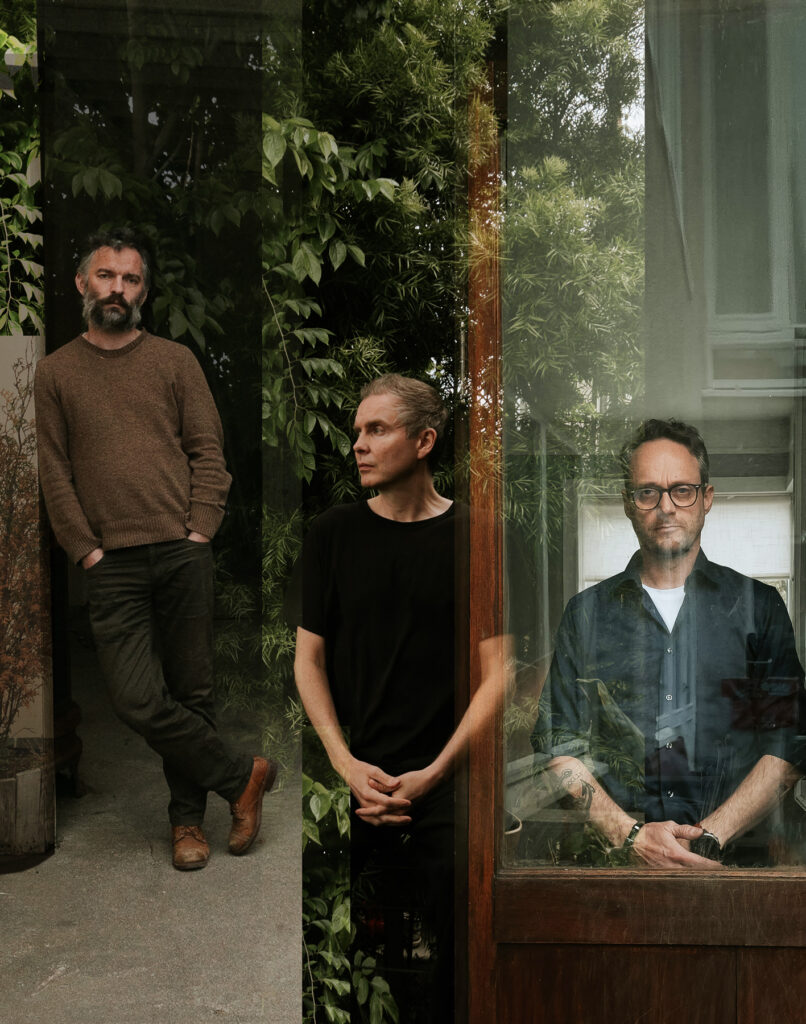
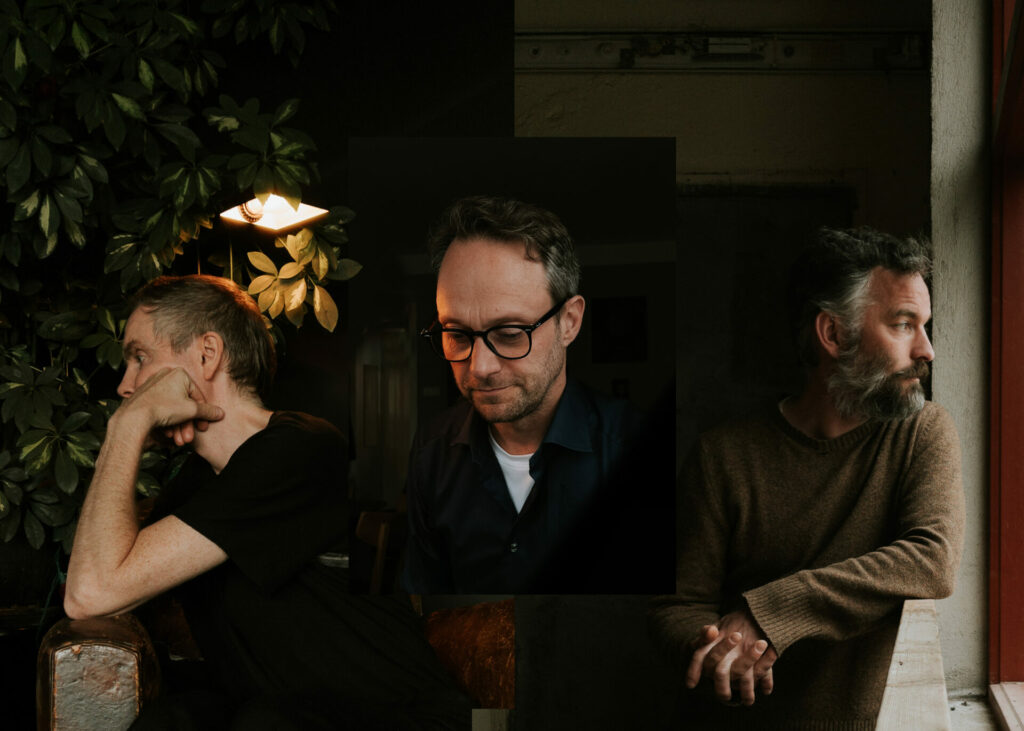
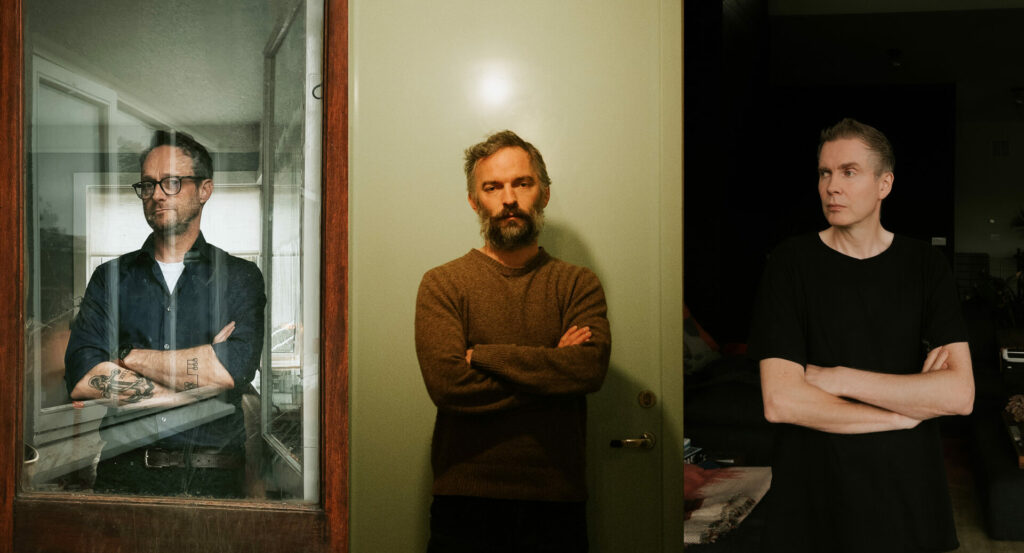
“The main hot-dog wagon doesn’t have vegetarian hot dogs, which is ridiculous. I always get really angry when I go back there,” he adds. I promise him that I’ll include this exchange, so the next time he’s in Reykjavík, the vendor may have changed their ways. “Yes, please. I’d love that.”
Birgisson now lives in LA, having eschewed the inclement Icelandic climate for something warmer. “I think I’m in my sun phase; I’m just like: ‘Give me as much sun as I can get, just every day, just fucking shine on my face. Give me some life.’” I put it to him that he might not be in his current line of work if he’d grown up in the sunshine. “Very true. I would probably have moved to Iceland. The grass is always greener…” He is currently in an overcast Seattle “it has a lot in common with Reykjavík”, having played a “perfectly rowdy” concert the previous evening to promote the band’s new — and quite unexpected — eighth album, ÁTTA (meaning eight in Icelandic). After a surprise digital release in June, the physical format arrived in early September, shortly after our meeting.
It’s their first album in 10 years, and a lot has changed in both their world, and the world at large. Perhaps in response to these challenging times, their sound has altered from the sharp, industrial and almost alienating atmosphere of their 2013 album Kveikur and returned to a more ethereal, revitalising soundscape, though this was not quite the mood which fed into the album.
“We have gone through a lot — the whole world and the band,” Georg Hólm, Sigur Rós’ bassist tells me on the morning of their Seattle date. “There was a point in time when we were not sure there would be another record… Not that it was a conscious decision; we just weren’t thinking about it. We didn’t feel tempted to do more. They were difficult times, we had the wind in our face, battling the elements. We felt a little bit battered, and the record did come as a surprise for us.”
The difficult times in question involve not only drummer Orri Páll Dýrason being accused of sexual assault (Dýrason denied the allegations but resigned in 2018 a few days after they were made), but also the Icelandic government accusing the band of evading 151m króna (£840,000) of tax between 2010 and 2014, an incident which Sigur Rós blamed on an accounting error before repaying the debt plus interest. They also faced a second prosecution for the same offence in 2020 and had their assets frozen. This time, the band fought back. “It just felt as if we were being attacked somehow. We felt it was unjust, so we did fight back… we wouldn’t have fought back if we hadn’t found it unjust, we’d have just admitted it, but it wasn’t our fault,” says Hólm.
Then there’s the general darkness which has engulfed the world in the past 10 years. Yet, in typical Icelandic style, with ÁTTA, Sigur Rós have managed to take the bleakness and melancholy and turn it into something celestial and uplifting. “I think this record is very positive, it’s like a glimmer of hope for me,” says Hólm. “We’ve always done a little bit of that. There will always be that moment in the music where there’s that one note that goes ‘Oh yes, that’s the one that I’m looking for,’ but I think we mastered it on this record.”
Birgisson agrees, “It all channels through. It’s hard to say when you write songs. You never do anything pre-thought or decided, it just happens, and all this stuff just channels out somehow — unconscious therapy, I guess.”

The personnel changes continued with the return of multi-instrumentalist Kjartan Sveinsson to the Sigur Rós fold. His comeback followed in the style of most of this album’s germination in that it was relaxed and almost happened by accident. It started pre-Covid, when Sveinsson visited Birgisson in LA. “We set up a small studio in the basement,” Birgisson recalls, “I had my guitar with the bow, and we just started playing and getting a few ideas. We hadn’t played together for years — it was fun, and things came with no effort and flowed really well.”
So there was no pressure because you didn’t know it was going to be a Sigur Rós record?
“I think you’ve hit the nail on the head there,” says Hólm. “It was really relaxed, there was no pressure at all, and when we started working on it, we were like ‘Let’s just see what happens.’ That is one of the key rules in the band — if there are rules in a band — that if we enjoy things then we will do them. When we formed, that’s what we said to each other: ‘We’ll do this as long as we enjoy it.’ And we’re still enjoying it.”
I suggest to Hólm that it sounds like the best sort of night out — not making any particular plans, and seeing where the evening takes you. “I guess the start of the record was exactly like that,” he replies. “Jónsi and Kjartan realised that they had something there, and then they called me and said that maybe this could be an album, maybe we should call this a Sigur Rós record and start working.”
Just as things started to click into place, however, there was the small matter of a pandemic. “Covid came, and we paused for two years, and then afterwards we got back together. After all of that, we wanted to do something pure and beautiful — as cheesy as that sounds,” says Birgisson. Then major world events kept happening: the Capitol attack in the US in January 2021 and the culling of women’s and LGBTQ+ rights across the country, then Russia’s invasion of Ukraine. “When we were mixing, Russia invaded Ukraine, and we were like, ‘Oh God. What’s going on in this world?!’ And also this climate craziness. It was just so much negativity and weirdness that we just wanted to throw ÁTTA out there, put it out for people somehow.”
In fact, the album was supposed to come out last year, and the physical release was supposed to drop simultaneously alongside the streaming in June. “I guess we started making the album the year before last — it was meant to be out last year, but delays… typical us,” Hólm says. “Last year’s tour was meant to be the tour for this record. We wanted to release everything at the same time — we wanted to be old school, big release with CD, vinyl, everything online… But we’d had enough of delayed gratification and just wanted to get the record out there.”

The album was streaming in time for this leg of the tour, where the three members of the band stand among a 41-piece orchestra — “a sound bath of our own making” as Birgisson puts it — where every lush orchestral whim the band have ever tended towards is fully indulged. The orchestra changes with every venue. “It takes a lot of time for our conductor to whip them into shape early on in the day,” says Birgisson. “Three hours’ rehearsal then two hours with us — that’s why he earns the big bucks!”
With the absence of any real percussion section in the band, however, I ask if there was ever any temptation to bring in a session drummer or to find an outright replacement for Dýrason. “Percussion is something we had to discuss right at the beginning,” says Hólm. “We didn’t find the answers immediately; we did experiment a lot. Some of the songs wanted to have beats on them, but we ended up taking a lot of it back, and one of the reasons is that we thought, ‘There is no drummer in the band, so we should embrace that and let the music flow a bit more freely.’”
It turns out that the lack of a drummer shaped the sound for ÁTTA, just as the absence of Sveinsson had shaped their most recent albums, with their lean towards a harsher, more mechanical sound. It was the return of Sveinsson which afforded the new record a lightness and sense of melody. “When Kjartan quit, we changed tactics on how to write songs and did it differently and maybe used more drums than ever. Then when Orri quit, there were no drums, no percussion. I think for this album, we focused on the melodies. It’s great to have Kjartan back — he’s just a melody maker and a kind of genius,” enthuses Birgisson.
With their ghostly, minimalist lyrics, the group have always encouraged their fans to apply their own meaning, feelings and experiences to the music, but this also seems to extend to the band. Whereas Birgisson sees the album as “sparse, spiritual, pure, and kind of beautiful”, Hólm has attached an entirely different description to ÁTTA because of his own recent struggles.
“I think this record looks within. I know it has this big sound, but for me it has this introspective feel to it — there’s no hiding, it’s a kind of ‘I have found myself, here I am,’” he says. “Maybe it’s because at the same time we were working on this record, I was going through lots of things. I stopped drinking; I came to realise I’d become an alcoholic and I had to completely change myself, and had to dig deep within myself, and maybe that’s why this record is like that for me in my heart.”
There are several opportunities to apply personal interpretation to this album. Not least of these is the striking artwork, a 1983 image by Icelandic artist Rúrí, depicting a burning rainbow flag. “Before we decided on this photo, we were thinking of some kind of climate disaster imagery,” says Birgisson. “Then we stumbled on Rúrí, and it’s an extremely powerful image — you can interpret that in so many ways. We probably would have been cancelled for it if it weren’t for the fact that I’m gay!”
But that is not where the opportunity for interpretation stops. The band invited 10 filmmakers to come to their own visual conclusions, without rules or boundaries, with the result that every track on this album is accompanied by a mini movie. “We did it for Valtari in 2012, and it was really fun to hand over the songs, and have people just do whatever they want. We got so much interesting feedback from that, so we just wanted to do it again and see if it worked — it’s important to see their take on the music,” says Birgisson.
Hólm agrees, “It’s always a thing in the band — people should just experience it themselves. It’s really interesting to see what meaning people put into it, and sometimes you wonder how their mind works: ‘How did you come up with that?!’”
Stepping into the unknown and embracing uncertainty seems to have become part of Sigur Rós’ DNA. The increasingly nebulous and irregular nature of their work, combined with the shape and scale of the band contracting and expanding, make their shows one of the most intimate and personal live experiences around. Not forgetting that they’re also a multi-million-selling act.
There is a consistent uncertainty in the future of the band too. “Every album is going to be the last album,” says Birgisson. “We were going to call this album Bless, which is Icelandic for ‘goodbye’. It’s kind of a cool word, ‘Bless to the world and bless to us and bless to everything.’ [It’s] really dramatic, but you never know what’s going to happen, and it’s good not to think about it maybe.”
Hólm is more optimistic, however. “This record rejuvenated us and our enthusiasm for the band and making music, and we’re already talking about making new music — no promises, though!”
Contrary to the last, and dancing between light and darkness, it seems as if Sigur Rós are not quite done with putting their unique, ethereal spin on melancholy and turmoil. In troubled times, it feels as if their lightness of touch is very much needed in order to break up the gathering clouds and to disperse negative energy… just don’t ask Birgisson about Icelandic hotdogs.
